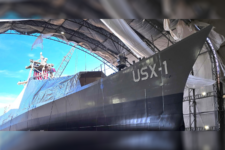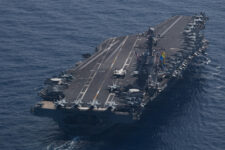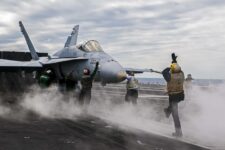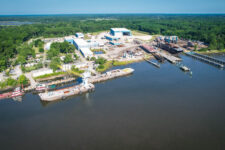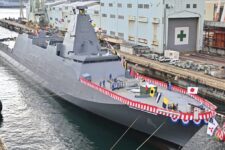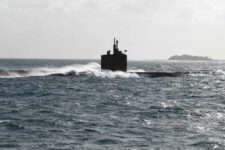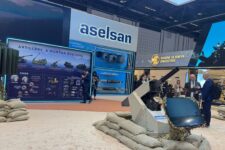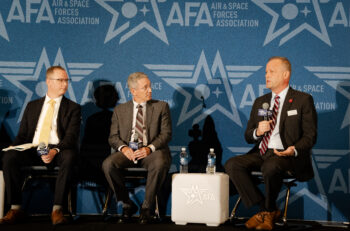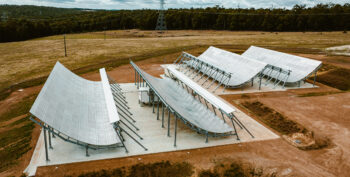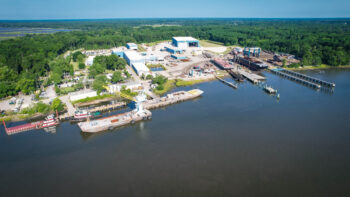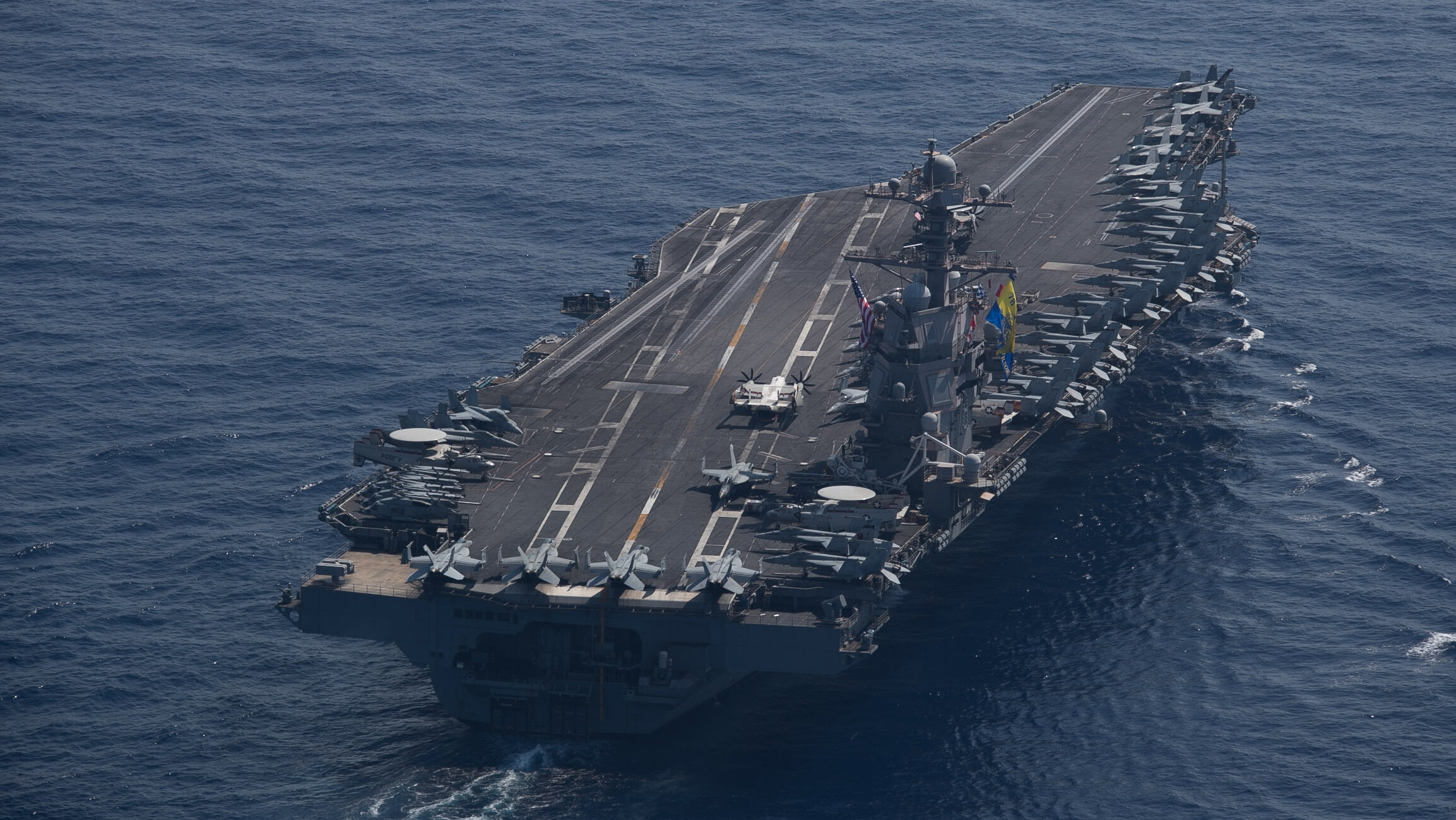
The aircraft carrier Gerald R. Ford (CVN-78) transits the Mediterranean Sea, Aug. 21, 2023. (U.S. Navy photo by Mass Communication Specialist 2nd Class Jackson Adkins)
WASHINGTON — A new survey conducted by a coalition of suppliers for US Navy aircraft carriers reports most vendors are facing increased challenges with inflation, material availability and workforce management.
The Aircraft Carrier Industrial Base Coalition survey [PDF], conducted in early November 2023 and published this week, received 150 voluntary responses. ACIBC is a trade association representing about 2,000 vendors across the country who make up the supply chain shipbuilder and prime contractor HII relies on to construct aircraft carriers at its Newport News Shipbuilding shipyard in Virginia.
Lisa Papini, ACIBC’s chairwoman, told Breaking Defense the results from the survey largely align with what vendors have told her anecdotally as recently as during the annual Surface Navy Association symposium last week.
According to a summary of the survey’s result, 95 percent of vendors have “faced challenges” due to inflation, 91 percent indicated they’ve had problems related to “material availability/delivery” and 85 percent have struggled “hiring, training and retaining their workforce.” A more comprehensive version of the survey is scheduled to be published in March.
Papini said ACIBC regularly conducts these surveys to monitor the state of the industrial base and relay the results to Navy leadership — a routine born out of the havoc initially caused by the coronavirus pandemic in 2020.
But these results come as anxiety in the carrier industrial base has risen over comments from Navy leadership about the potential for the next Ford-class aircraft carrier, CVN-82, to be delayed one or two years. The concerns ACIBC highlighted related to that potential timeline slip also largely echo those of HII, which gathered reporters ahead of SNA to discuss the need for CVN-82 to remain on schedule, among other issues.
The second page of a two-page summary of the survey focuses heavily on the prospect of a delay to CVN-82 and what impact that could have on the industrial base.
“CVN-82 is forecast to be 6+ years after CVN-81 based on the president’s budget 2024 projections (procurement in 2028); based on that timeline, nearly 50 [percent] of [advanced procurement] suppliers are already expected to have already stopped continuous production (i.e. ‘go cold’) for their respective CVN material/equipment by then,” according to the summary.
“Going cold” can refer to anything from a supplier idling a production line, re-working the line to serve a customer other than the US Navy or, in the worst-case scenario, shutting their business down entirely. The Navy’s projection to buy CVN-82 in FY28 is already later than the industrial base’s preferred cadence of one ship constructed every four years, which is why the possibility of further delays is fueling anxiety among vendors.
Papini said that most ACIBC suppliers for long-lead-time materials assume orders will start coming for a ship up to three years out from when the Navy plans to purchase the vessel.
In other words, if suppliers have been expecting the Navy to buy CVN-82 in FY28, but orders do not start coming in during FY25, the problem of suppliers “going cold” will be exacerbated.
“When we deviate from that schedule that’s been previously identified, that is where the going cold starts to come into play,” she told Breaking Defense. “And that’s where the concern is on that schedule.”
The survey’s publication also follows a recent announcement from Navy Secretary Carlos Del Toro that he ordered a “comprehensive shipbuilding review” to assess both “national and local causes of shipbuilding challenges.”
Del Toro in his initial statement did not explain what prompted his new review, but indicated he expected an interim progress report briefed to him within 45 days — just in time to prepare for the inevitable hearings with lawmakers later this year to discuss the president’s next budget request.
As industry frets licensing bottlenecks, NOAA reinstates top commercial space officials
Representatives of US remote sensing firms remain extremely nervous about possible roadblocks to future plans that require either new licenses or license modifications due to the personnel downsizing resulting from the efforts of Elon Musk’s DOGE team to chop the size of the federal bureaucracy.

